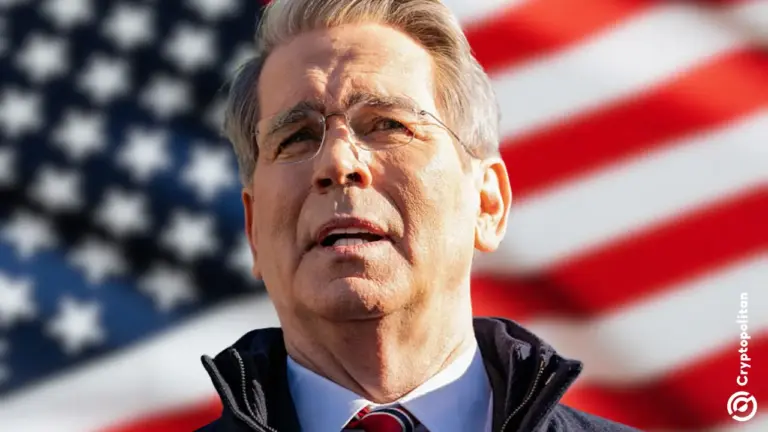Bo Hines Resigns, Shifting U.S. Crypto Policy Focus
- Main event, leadership changes, market impact, financial shifts, or expert insights.
- Pivotal leadership shift signals a new federal crypto strategy.
- Increased Bitcoin emphasis anticipates investor and institutional engagement.
Bo Hines, Executive Director of the White House Crypto Council, resigned in August 2025 after eight months in the role, signaling a policy shift favoring Bitcoin.
This resignation and leadership change could impact Bitcoin’s role in federal policy and investor confidence with anticipated institutional interest.
Bo Hines, Executive Director of the White House Crypto Council, announced his resignation in August 2025. His decision was communicated publicly on X (Twitter), marking the end of his eight-month tenure in a key federal position. “My resignation signifies a pivotal moment for U.S. digital asset policy as we continue to navigate a rapidly evolving landscape.”
Following Hines’s departure, Patrick Witt has taken over the leadership role. Witt intends to emphasize Bitcoin as infrastructure, affecting U.S. economic and global crypto strategies. This signals a substantial leadership transition in the national crypto policy framework. Patrick Witt, Successor, White House Crypto Council , “With Bitcoin as the cornerstone of our strategy, we aim to redefine U.S. economic policies and embrace a future where digital assets are integral to our financial fabric.”
Hines’s resignation has notable ramifications for both the crypto industry and federal policy. Bitcoin and Ethereum markets have reacted positively, with institutional adoption efforts expected to intensify. This transition could result in a surge of financial activity.
Financial and market dynamics are likely to experience shifts as a result of this strategic refocus. Policies initiated by Hines aimed at bitcoin adoption have already sparked optimism among investors, hinting at further regulatory clarity and institutional engagement. For more insights, check the White House report on digital assets and executive order .
Historical trends suggest that leadership changes within government crypto councils usually lead to volatility. The emphasis on Bitcoin could enhance U.S. competitiveness in the digital asset landscape, possibly affecting global regulatory strategies.
The reshuffle could yield broader financial, regulatory, and technological implications. Ongoing support for the Strategic Bitcoin Reserve initiative may bolster the U.S. position in the digital currency domain, prompting potential adjustments in global market behaviors.
| Disclaimer: The content on The CCPress is provided for informational purposes only and should not be considered financial or investment advice. Cryptocurrency investments carry inherent risks. Please consult a qualified financial advisor before making any investment decisions. |
Disclaimer: The content of this article solely reflects the author's opinion and does not represent the platform in any capacity. This article is not intended to serve as a reference for making investment decisions.
You may also like
World Liberty Financial weighs $1.5B public company to hold WLFI tokens

Ethereum transaction volumes see year-high amid SEC staking drama


Bessent says next Fed chair must look beyond rates
Share link:In this post: Treasury Secretary Scott Bessent told Japan’s Nikkei the next Fed chair must have market credibility, strong data-analysis skills, and a forward-looking approach beyond just rate policy. He defined a “strong dollar” as maintaining the U.S. dollar’s reserve currency status through sound economic policy, not pegging it to a fixed exchange rate. About 10 candidates are in the running to replace Jerome Powell in May, including James Bullard, Kevin Hassett, Kevin Warsh, Christopher Wall

